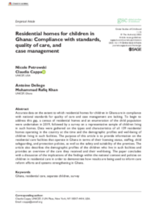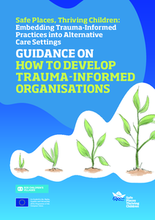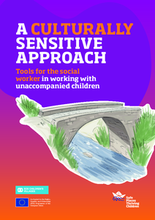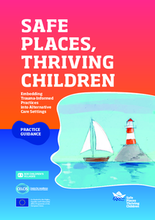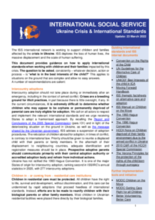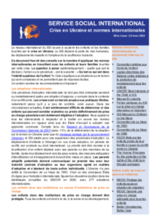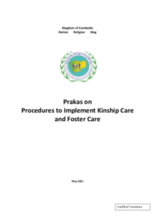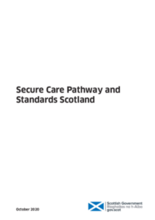Displaying 11 - 20 of 372
The purpose of this article is to provide information on the residential care facilities that operate in Ghana in terms of their licensing status, staffing, child safeguarding, and protection policies, as well as the safety and suitability of the premises. The article also describes the demographic profiles of the children who live in such facilities and provides an overview of the care they received and their well-being.
The Guidance Document was developed to support organisations taking part in the Organisational Development workshops for the project. Through the workshops, we aim to establish a trauma-informed culture in organisations that care for and support children and young adults in alternative care.
This resource was developed by SOS Children's Villages Belgium as an annex to the Practice Guidance. This tool provides guidance for social workers working with unaccompanied refugee and migrant children on how to use trauma-informed practices in a culturally sensitive way.
The Practice Guidance was developed by CELCIS and SOS Children’s Villages as a resource for participants taking part in the “Safe Places, Thriving Children” training. The purpose of this guidance is to improve understanding and practice in relation to working with children and young adults who live in alternative care settings and who may have experienced trauma.
As part of the “Safe Places, Thriving Children” project, SOS Children’s Villages has developed a series of six e-learning modules which aim at increasing participants’ understanding of trauma and its effects on children and young people, and provide guidance on how to act in a more trauma-sensitive way when working with children, young people and families.
This document provides guidance on how to apply international standards when working with children and their families impacted by this crisis. The question to be asked, consistently – whatever decision, action or process – is “what is in the best interests of the child?” This applies to situations on the ground that are complex and allow no easy answers.
Este documento brinda orientación sobre cómo aplicar los estándares internacionales cuando se trabaja con niños y sus familias afectados por esta crisis. La pregunta que se debe hacer, de manera consistente, sea cual sea la decisión, acción o proceso, es "¿qué es lo mejor para el niño?" Esto se aplica a situaciones sobre el terreno que son complejas y no permiten respuestas fáciles.
Ce document fournit des conseils sur la manière d'appliquer les normes internationales lorsque vous travaillez avec des enfants et leurs familles touchés par cette crise. La question à poser, systématiquement - quelle que soit la décision, l'action ou le processus - est "qu'est-ce qui est dans l'intérêt supérieur de l'enfant?" Cela s'applique à des situations sur le terrain qui sont complexes et ne permettent pas de réponses faciles.
This Prakas was drafted in accordance with Cambodia’s policies, standards and regulations to enable the implementation of kinship care and foster care. The Goal of the Prakas is to ensure the best interests of the child and protect the basic rights of the child separated from his/her biological parents and receiving kinship or foster care, so that they are safe and thriving in a warm, loving and happy family environment.
The pathway and standards set out what all children in or on the edges of secure care in Scotland should expect across the continuum of intensive supports and services.

